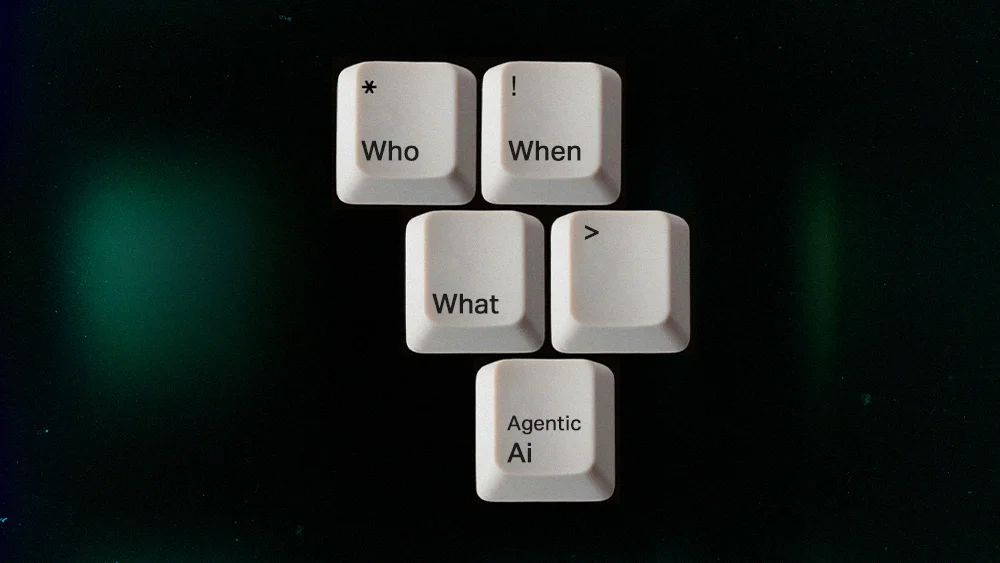AI and Automation
AI puts marketing's day-to-day on autopilot, humans shift from execution to strategy
Glide News DeskTuesday June 24, 2025

Reinforcement learning and combining automation with human oversight in marketing strategies leads to better brand control and effectiveness.
Timee, Inc.'s CMO, Shoichi Nakagawa, points to the shift towards automated marketing execution, emphasizing the importance of strategic human oversight.
Nakagawa is preparing for an AI-driven marketing future by planning to incorporate a Measurement Architect role to enhance data-driven decision-making.
AI is reshaping how our teams work. Understanding remains essential for direction, but the day-to-day execution—the 'who, when, and what' of marketing—is rapidly moving to auto-pilot.

Shoichi Nakagawa
Executive Officer and CMO, Timee, Inc.
As autonomous tools shift from assistive to directive, the very structure of marketing teams is being rewritten. It's not a tech upgrade; it's a new chain of command. AI handles the trenches, pushing human talent to the strategic command posts.
Shoichi Nakagawa, Executive Officer and CMO at Timee, Inc., a company redefining flexible employment in Japan through data-driven marketing, is reengineering how his team operates.
Steering the ship: "AI is reshaping how our teams work. Understanding remains essential for direction, but the day-to-day execution—the 'who, when, and what' of marketing—is rapidly moving to auto-pilot," says Nakagawa. "This collapses human responsibilities into the essential strategic functions: defining outcomes, codifying brand and legal guardrails, drafting high-level strategy, and tuning the AI's outputs against our goals." The shift isn't just in tools—it’s in team design, priorities, and where human judgment matters most.
Hot and cold: But a "temperature gap" remains. "Platform companies still evangelize full automation, whereas many CMOs insist on keeping a firm grip on brand control," Nakagawa says. The tension underscores a shifting relationship between automation and ownership. The results, however, are hard to ignore. A Moloco study showed that pairing independent apps with its AI DSP lifted ROAS by a significant margin—which Nakagawa sees as "evidence that 'channel diversification plus autonomous buying' is becoming the main battlefield."
Platform companies still evangelize full automation, whereas many CMOs insist on keeping a firm grip on brand control.

Shoichi Nakagawa
Executive Officer and CMO, Timee, Inc.
Decisions need data: "What matters most is adopting an explicit stance on measurement so that bold decisions are possible," Nakagawa says. As AI handles more execution, that measurement becomes indispensable. He advocates for "a blended approach—deterministic data, probabilistic modeling, and MMM—pushed directly into daily operations to raise decision velocity." New measurement strategies are essential, but some fundamentals don’t change. "Know the core value your app provides and the problem it solves," Nakagawa says. "In both the experimentation phase and the growth phase, humans still own that discovery work."
Good vibes only: This shift is also unlocking tools that put more power directly in marketers' hands. Nakagawa points to Lovable, a vibe-coding IDE that turns natural-language specs into React UI. "I built a functional mock in half a day," he says, proof that marketers can now prototype and iterate faster than ever.
Stacking the future: Nakagawa is already charting the next moves. "Map out agentic-AI use cases that fit our own stack, and determine how to embed a Measurement Architect role. someone who can design across SKAN, MMM, and incremental-lift analytics." These two tracks will reshape project priorities and hiring plans over the next six months as Timee gears up for an AI-driven marketing future.